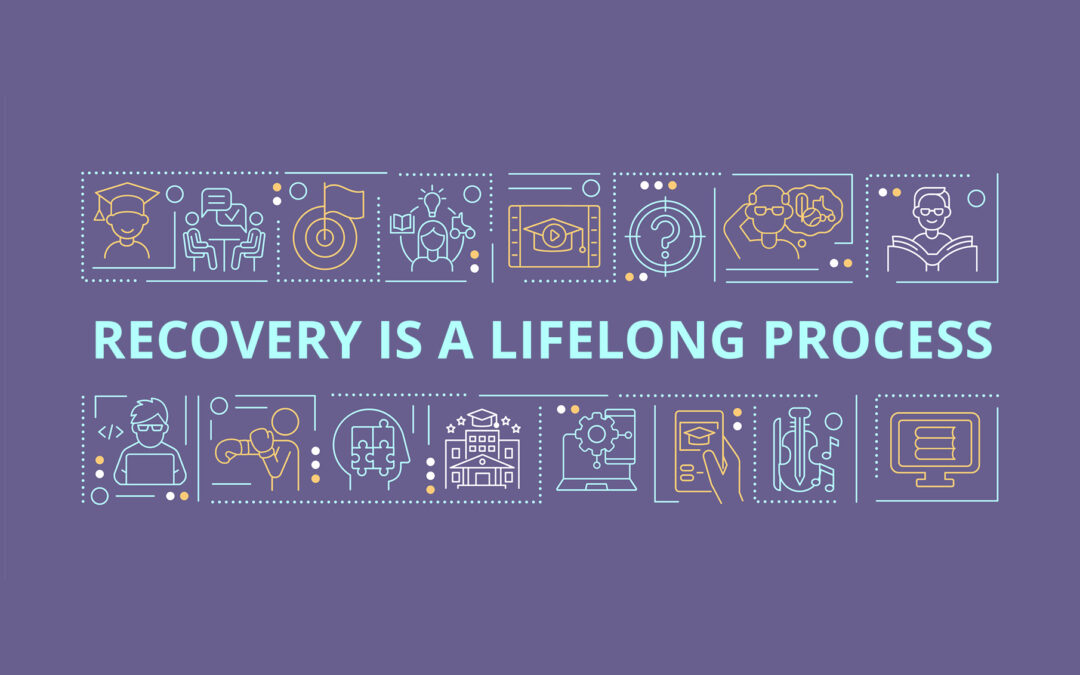Recovery from alcohol addiction is not a one-time event but a lifelong journey. The process of recovering from addiction involves continuous effort, commitment, and the support of a robust network. This guide delves into the five key reasons why recovery is a lifelong process, highlighting the importance of ongoing care and vigilance.
1. The Chronic Nature of Addiction
Understanding Addiction as a Chronic Disease
Addiction is widely recognized as a chronic disease, akin to diabetes or hypertension. It alters brain chemistry and impacts behavior, making it challenging to overcome without long-term treatment and management. The chronic nature of addiction means that, even after initial treatment, individuals must remain vigilant to prevent relapse.
Managing Triggers and Cravings
Cravings and triggers can persist long after achieving sobriety. These can be psychological or environmental cues that provoke a strong urge to drink. Understanding and managing these triggers is crucial for maintaining long-term sobriety. Techniques such as cognitive-behavioral therapy (CBT) and mindfulness can help individuals recognize and cope with triggers effectively.
Continuous Monitoring
Due to the chronic nature of addiction, continuous monitoring is essential. Regular check-ins with healthcare providers, participation in support groups, and ongoing therapy sessions can help monitor progress and address any emerging issues promptly.
2. The Importance of Support Networks
Building a Strong Support System
A strong support network is fundamental to recovery. This network can include family, friends, support groups, and healthcare professionals. These individuals provide emotional support, accountability, and encouragement throughout the recovery journey.
Participation in Support Groups
Support groups like Alcoholics Anonymous (AA) offer a community of individuals who understand the challenges of addiction. Regular participation in such groups provides a sense of belonging and mutual support, which is invaluable for sustained recovery.
Family and Friends
The role of family and friends cannot be overstated. Their support can provide the motivation and strength needed to stay on the path of recovery. Family therapy sessions can also help address any relational issues that may have arisen due to addiction.
3. The Need for Ongoing Therapy
Continuous Psychological Support
Therapy is a crucial component of addiction recovery. Continuous psychological support helps address underlying issues that may have contributed to addiction. Therapists can provide tools and strategies to manage stress, cope with triggers, and build a healthy lifestyle.
Addressing Co-occurring Disorders
Many individuals with alcohol addiction also struggle with co-occurring mental health disorders such as depression, anxiety, or PTSD. Ongoing therapy is essential to address these issues concurrently, as untreated mental health disorders can increase the risk of relapse.
Evolution of Therapy Needs
As individuals progress in their recovery, their therapeutic needs may evolve. Regularly reassessing and adjusting the therapeutic approach ensures that individuals receive the most effective care at each stage of their recovery.
4. Lifestyle Changes and Maintenance
Developing Healthy Habits
Recovery involves significant lifestyle changes. Developing and maintaining healthy habits, such as regular exercise, a balanced diet, and adequate sleep, supports overall well-being and reduces the risk of relapse.
Building New Routines
Creating new routines that do not revolve around alcohol is essential. This can include finding new hobbies, social activities, and ways to relax and enjoy life without the influence of alcohol.
Stress Management
Effective stress management is crucial for maintaining sobriety. Techniques such as mindfulness, meditation, and yoga can help manage stress levels and prevent it from leading to relapse.
5. The Risk of Relapse
Understanding Relapse as Part of the Process
Relapse is often part of the recovery process and should not be viewed as a failure. Understanding that relapse can occur helps individuals prepare for it and take proactive steps to prevent it.
Early Warning Signs
Recognizing the early warning signs of relapse is crucial. These can include changes in behavior, withdrawal from support networks, or an increase in cravings. Early intervention can prevent a full-blown relapse.
Long-term Relapse Prevention Strategies
Developing long-term relapse prevention strategies is essential for sustained recovery. This can include continued participation in support groups, ongoing therapy, and maintaining a healthy lifestyle.
Conclusion
Recovery from alcohol addiction is a lifelong process that requires continuous effort and commitment. Understanding the chronic nature of addiction, building a robust support network, engaging in ongoing therapy, making significant lifestyle changes, and preparing for the possibility of relapse are all crucial components of sustained recovery. By embracing these aspects, individuals can navigate the challenges of recovery and build a fulfilling, sober life.
Recovery is not a destination but a journey. Each step taken, no matter how small, is a move towards a healthier, more fulfilling life. With the right support and dedication, long-term sobriety is achievable. The journey may be long, but the rewards of a sober life are well worth the effort.

